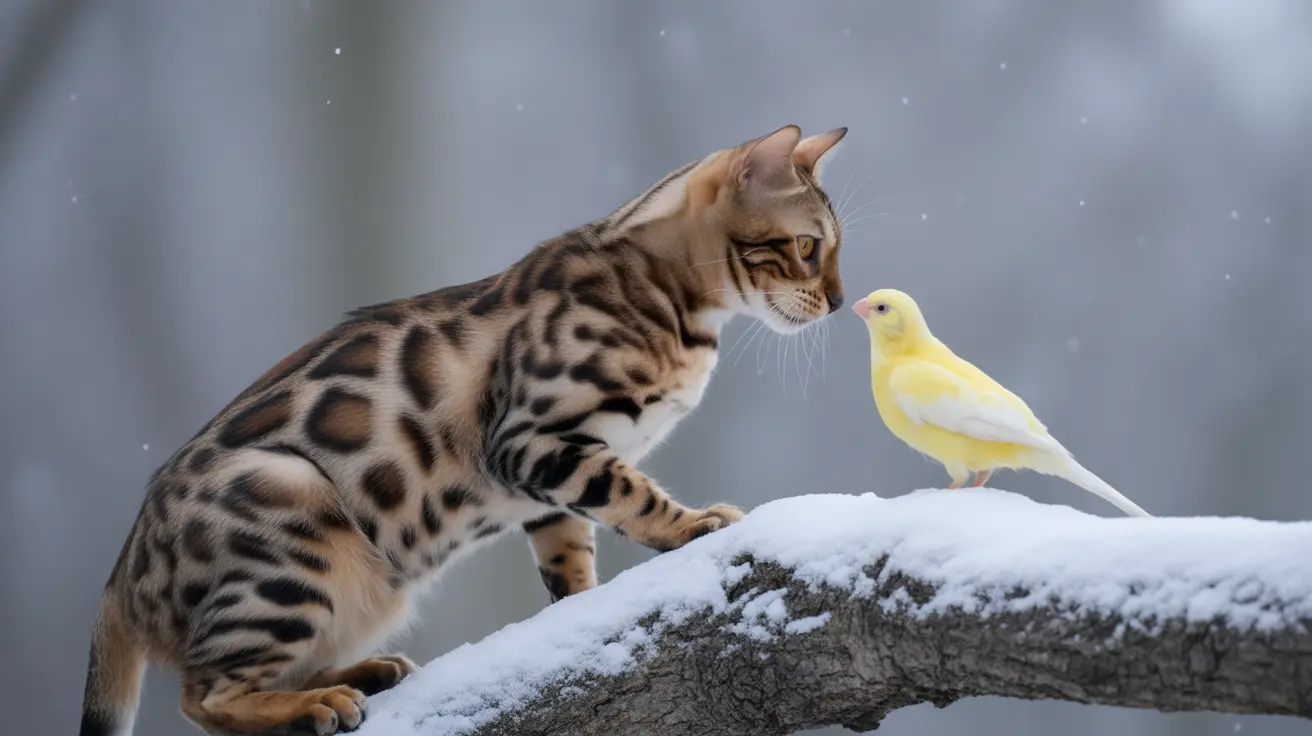Understanding Your Cat's Natural Hunting Instinct
Cats are natural predators, and their hunting behavior is deeply ingrained in their DNA. Even well-fed domestic cats maintain this instinct, as hunting isn't solely driven by hunger. Instead, it's connected to their need for mental stimulation, exercise, and the satisfaction of their predatory drive.
Research shows that cats spend between three to ten hours daily engaged in hunting-related behaviors, regardless of their feeding schedule. This behavior is hardwired and cannot be eliminated through punishment or training.
Immediate Steps When Your Cat Kills a Bird
If You Find a Dead Bird
- Carefully remove the bird using gloves or a plastic bag
- Dispose of it properly in a sealed container
- Clean the area thoroughly to prevent disease transmission
- Check your cat for any injuries or signs of distress
If the Bird Is Still Alive
- Separate your cat from the bird immediately
- Place the bird in a quiet, dark box with air holes
- Contact a local wildlife rehabilitator or veterinarian
- Keep the bird warm and avoid handling it unnecessarily
Prevention Strategies for Future Incidents
Indoor Solutions
The most effective way to prevent bird kills is keeping your cat indoors. Create an enriching indoor environment with:
- Interactive toys that simulate hunting
- Climbing structures and observation posts
- Regular play sessions to expend energy
- Food puzzle toys for mental stimulation
Outdoor Management
If your cat goes outdoors, consider these preventive measures:
- Install a "catio" or enclosed outdoor space
- Use a cat collar with a bell or bright colors
- Schedule outdoor time during hours when birds are less active
- Create designated outdoor play areas away from bird feeders
The Environmental Impact of Cat Predation
Domestic cats contribute significantly to bird mortality, with estimates suggesting they are responsible for billions of bird deaths annually in the United States alone. Understanding this impact helps emphasize the importance of responsible pet ownership and wildlife protection.
Supporting Your Cat's Natural Instincts Safely
Rather than attempting to suppress your cat's hunting instincts, channel them into appropriate activities:
- Implement daily interactive play sessions
- Provide hunting-simulation toys
- Create indoor hunting games with treats
- Establish regular exercise routines
Frequently Asked Questions
Why do cats kill birds even when they are well-fed?
Cats hunt primarily due to instinct, not hunger. This behavior is part of their natural programming and provides mental stimulation, exercise, and satisfaction of their predatory drive, regardless of their food intake.
How can I stop my cat from hunting and killing birds in my garden?
The most effective method is keeping your cat indoors or creating a secure outdoor enclosure. Additionally, provide plenty of indoor enrichment, use deterrent collars, and consider scheduling outdoor time when birds are less active.
Are there effective collars or accessories to prevent my cat from catching birds?
Yes, collar-mounted bells and brightly colored "bird-safe" collars can help alert birds to your cat's presence. However, their effectiveness varies, and they should be used in conjunction with other preventive measures.
What should I do if my cat brings home a dead or injured bird?
For dead birds, carefully dispose of them using gloves. For injured birds, contain them in a quiet, dark box and contact a wildlife rehabilitator immediately. Always check your cat for potential injuries.
How does my cat's hunting behavior affect local bird populations and wildlife?
Cat predation has a significant impact on local bird populations, contributing to population decline and potentially affecting ecosystem balance. This impact extends beyond direct kills to include stress effects on surviving birds.
Conclusion
While cat predation on birds is a natural behavior, it's our responsibility as pet owners to manage this instinct in ways that protect both our pets and local wildlife. By implementing appropriate preventive measures and providing alternative outlets for hunting behavior, we can create a better balance between our cats' natural instincts and wildlife conservation.






